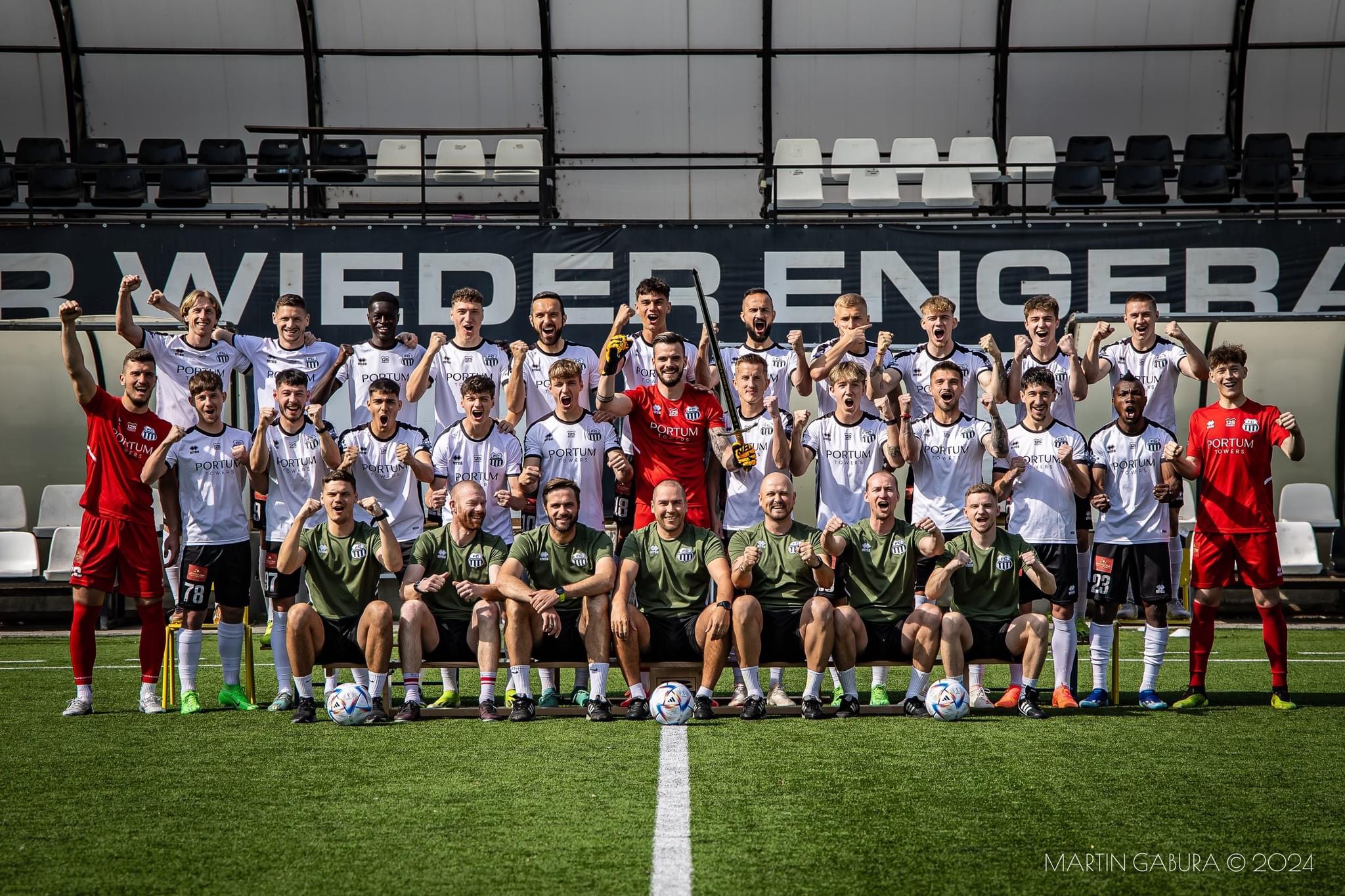Case Study: Cooperation with FC Petržalka

1. Initial State
FC Petržalka faced significant challenges before our cooperation began. Over the last six years, the team never ranked higher than 8th in the league, and there was a high turnover of coaches, with over 15 head coaches appointed during this period. The club suffered from instability, reactive rather than proactive management, constant changes, and unclear culture, vision, and goals.
2. First Steps: Getting to Know the Team
To address these challenges, the first step was an in-depth team analysis, which included:
- Individual Conversations: One-on-one discussions with players to understand their perspectives and concerns.
- Behavioral Analysis: Observing player behavior on the pitch and during preparatory games.
- Mental Diagnostics: Utilizing Balance Management to assess mental attributes.
This analysis revealed the following key challenges:
- Untapped Potential: Players with high potential were not performing to their fullest.
- Communication Issues: Conversations were focused on complaints rather than solutions, with multiple communication lines discussing the same issues, often focusing on blame rather than conflict resolution.
- Low Self-Esteem: The team collectively exhibited low self-esteem.
- Grouping: The team was fragmented into five distinct groups.
- Lack of Leadership: There was no player demonstrating leadership both on and off the pitch.
3. Forming Stage: Responding to Challenges
In the forming stage, we addressed the identified challenges by:
- Defining Culture, Values, and Goals: Together with the players and head coach, we established team values and set performance goals.
- Maximizing Player Potential: Collaborating closely with Head Coach Michal Kuruc, who had a clear vision of the team’s play style and set non-negotiable performance and behavior standards.
- Addressing Leadership and Grouping: Based on mental profiles, football quality, and seniority, a leadership team was created. This team included members from each group to foster connection on and off the pitch. We also mixed different people in various exercises, including football drills and workshops focused on mindset and team spirit.
- Improving Self-Esteem: This was approached as a long-term goal. We developed a plan with the coaching staff to enhance individual self-esteem, which in turn would boost overall team self-esteem. This involved individual conversations with players, a personalized approach by the coach to key players, and creating an environment where players could focus on performance without personal and family issues impacting their game.
During this stage, we proactively communicated with club management that the effects of these changes would be seen in improved performance, not necessarily immediate results. We linked mental attributes with specific behaviors on the pitch using Wyscout and GPS data.

4. Storming Stage: Dealing with Pressure on Results
As we transitioned to the storming stage, the coaching staff started to demand higher performance, leading to increased complaints and excuses among players. We identified that about 10% of the players could not meet the inclusive minimum requirements due to a lack of technical, tactical skills, game understanding, and willingness to adhere to team values. These players were sent on loan or excluded from the regular team.
The leadership team played a crucial role in maintaining the adherence to team values and quality standards. Despite the challenging start, with 2 wins, 2 draws, and 5 losses out of 5 preseason and the first 3 season games, we emphasized the importance of focusing on performance improvement rather than immediate results. Performance data indicated the desired improvements, validating our approach.
First part conclusion
In the beginning of the cooperation with FC Petržalka involved addressing deep-rooted issues within the team, establishing a clear culture and values, and improving communication and self-esteem. The structured approach in the forming and storming stages laid the foundation for long-term success, focusing on performance improvements and gradual achievement of better results.
How did the season end?
Was this foundation enough for success?
Find out in the next part.